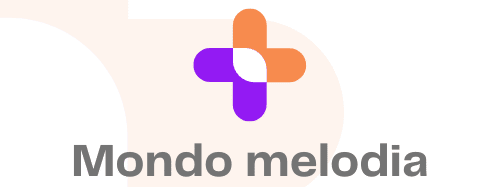In the contemporary digital era, where smartphones dominate a significant portion of our daily lives, apps have become valuable tools for managing our time and health. This article explores an increasingly pertinent issue for today’s college students: the effectiveness of smartphone apps in managing time and reducing anxiety. The study of such apps and their impact on mental health has surged in recent years, and a range of mHealth (mobile health) apps have emerged in the market, promising a solution for enhancing time management skills and reducing anxiety levels among users.
Efficacy of Time Management Apps
Time management is a critical skill for college students. It is the decisive factor in meeting deadlines, preparing for examinations, and balancing academics with extracurricular activities. However, mastering this skill is no easy feat. According to a study published by Crossref, a significant number of students struggle with effective time management. Enter mobile apps.
In the era of smartphones, apps promising to enhance time management skills are plentiful. These apps offer features like task prioritization, reminder setting, time tracking, and progress monitoring. But how beneficial are these apps to the students?
A study conducted on a group of college participants, who were asked to use time management apps for a month, presented interesting results. The analysis revealed that the participants who used these apps had a significant improvement in their time management skills. They reported being more organized, less stressed about deadlines, and overall, more productive.
However, it’s important to note that the effectiveness of these apps may vary based on individual usage habits. While some users may find the features helpful, others may not use them to their full potential, limiting the app’s effectiveness.
Impact of mHealth Apps on Anxiety and Depression
Moving beyond time management, let’s delve into the realm of mHealth. MHealth apps, designed to monitor and improve mental health, have seen a surge in popularity amongst college students.
These apps offer a range of features to combat anxiety and depression, including guided meditation, cognitive-behavioral therapy (CBT) strategies, mood tracking, and stress management techniques. They aim to provide an easily accessible, cost-effective intervention for mental health issues.
According to a study published by Crossref, the use of mHealth apps showed a significant decrease in anxiety and depression symptoms among college students. The participants reported feeling more in control of their mental health, with better coping strategies at their disposal.
However, critics argue that while these apps may provide temporary relief, they cannot replace professional mental health services. They are a supplement, not a substitute.
The Role of Crossref in Evaluating App Effectiveness
In determining the effectiveness of these apps, Crossref, a reputable academic citation indexing service, serves as a critical resource. It provides a platform for scholarly research, studies, and analysis on a myriad of subjects, including the impact of smartphone apps on users’ time management and mental health.
The studies referenced from Crossref in this article underline the significance of these apps, providing empirical evidence of their impact. It’s worth noting that these studies were based on self-reported data, which, while significant, has its limitations and may not provide a complete picture of the overall impact of these apps.
Balancing Smartphone Usage and Mental Health
While smartphone apps may play a key role in managing time and reducing anxiety, it’s critical to balance smartphone use. Excessive smartphone usage can contribute to stress and anxiety, negating the benefits these apps may provide.
A study on smartphone usage patterns among college students found a direct correlation between excessive smartphone usage and increased levels of anxiety and depression. It seems that while smartphones can be a tool for better mental health, they can also be a potential trigger if not used responsibly.
In summary, smartphone apps, guided by credible studies and analyses, have shown promise in managing time and reducing anxiety among college students. However, it’s crucial to remember that these apps are tools to be used wisely and responsibly. They are not a substitute for professional help when it comes to mental health issues.
While we continue to navigate our increasingly digital lives, let’s harness the potential benefits of these apps, but also be mindful of our overall smartphone usage. After all, technology is a tool, and its impact depends largely on how we use it.
Utilizing Crossref and Google Scholar for Citing Research
When it comes to scholarly research on the effectiveness of smartphone apps in managing time and reducing anxiety, we cannot undermine the importance of credible resources like Crossref and Google Scholar. These platforms serve as reliable databases for accessing studies and academic literature.
Crossref, apart from being a citation indexing service, provides access to a broad range of scholarly content across multiple disciplines. The studies referenced from Crossref in this article offer substantial evidence supporting the effectiveness of time management and mHealth apps on college students’ productivity and mental health.
On the other hand, Google Scholar serves as a one-stop source for academic papers, scholarly articles, theses, books, and conference papers, further providing access to court opinions and patents in many countries. The studies available on this platform offer valuable insight into the subject matter, helping shape our understanding of the issue.
However, it’s important to be mindful of the inherent limitations of relying solely on self-reported data. It offers valuable insights, but it might not paint a complete picture of the overall impact of these apps. Complementing it with randomized controlled trials could provide a more comprehensive understanding.
Concluding Thoughts: Smartphone Apps as a Tool, Not a Cure
Smartphone apps, especially those focusing on time management and mental health, have shown promise in helping college students manage their demanding schedules and alleviate symptoms of anxiety and depression. Studies referenced from Crossref and Google Scholar provide empirical evidence supporting these claims.
However, it’s crucial to understand that these apps are tools, not cures. While they provide useful strategies and techniques for managing stress and enhancing productivity, they are not a replacement for professional mental health services. In cases of severe anxiety or depression, seeking help from a health professional should be paramount.
Additionally, the importance of responsible smartphone usage cannot be overstated. While these apps can be beneficial, excessive screen time can have negative impacts on mental health, potentially leading to increased levels of anxiety and depression. As the old saying goes, "too much of anything can be bad," and smartphone usage is no exception.
In conclusion, while smartphone apps can be effective in managing time and reducing anxiety among college students, their usage should be balanced and supplemented with professional mental health services when needed. As we progress further into the digital age, we must remember that technology, at its best, serves as a tool that aids us, not a solution that defines us.











